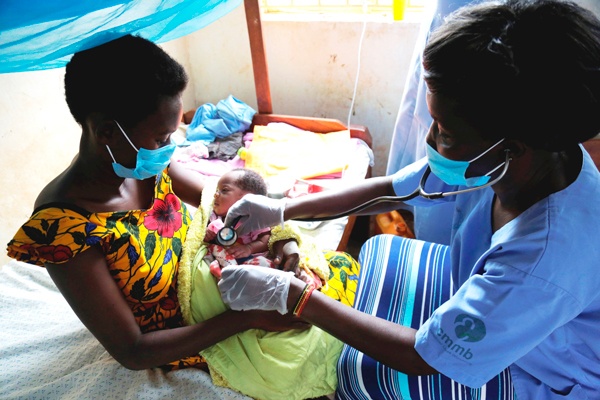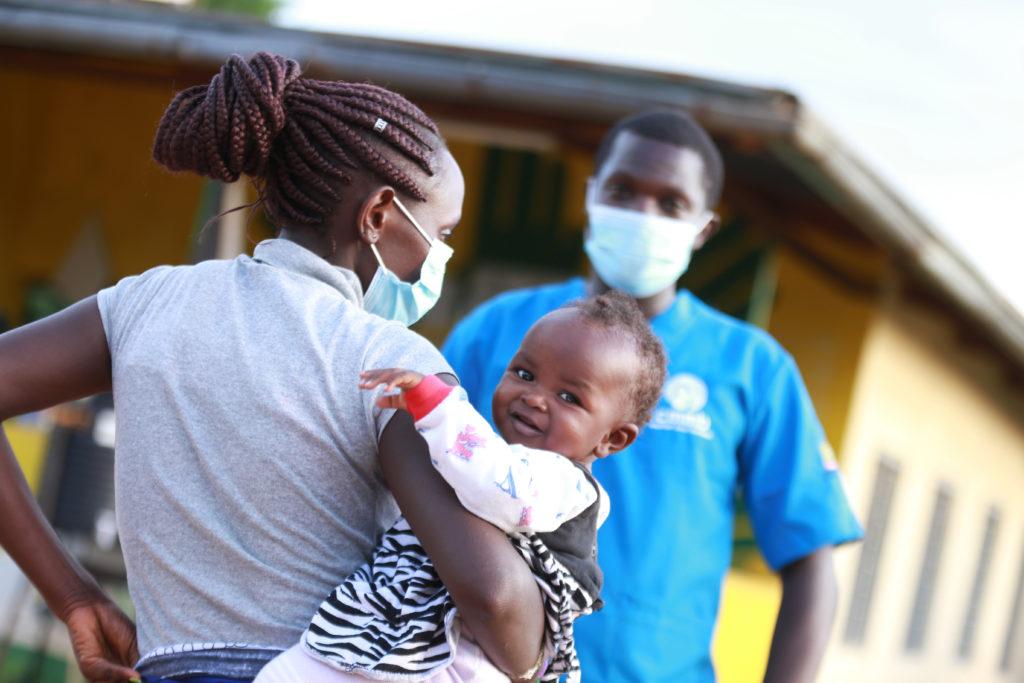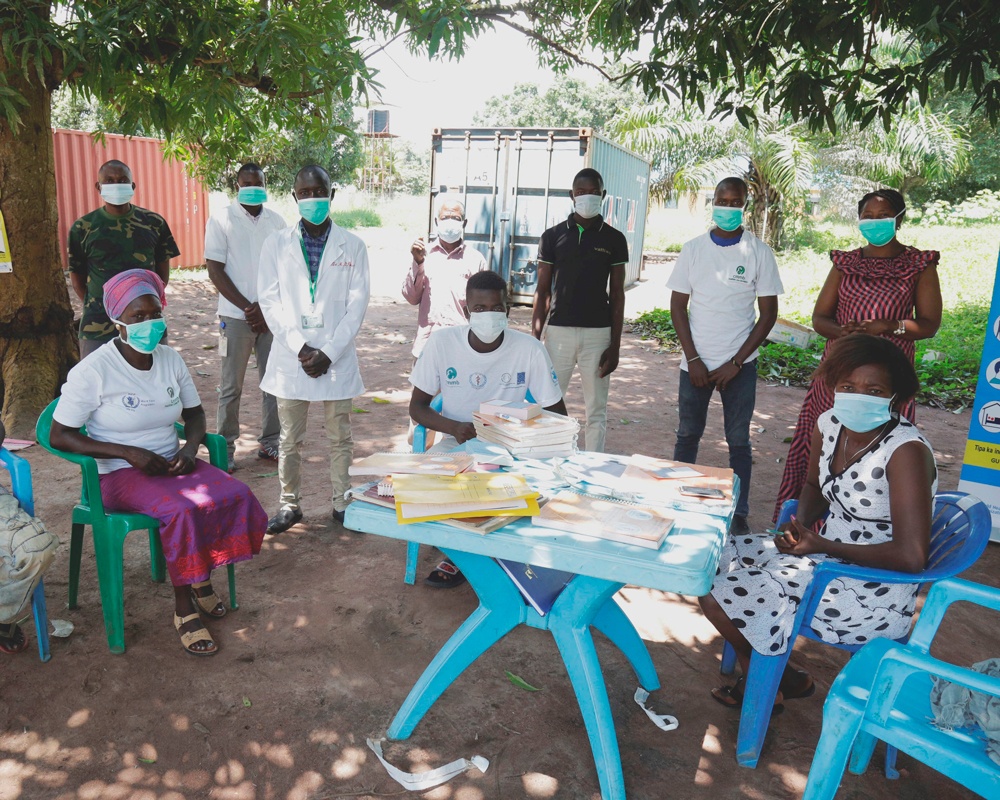Training for Resilience in the Global South

This piece by Julie Burboun was originally published in United States Catholic Mission Association April 2021 newsletter.
For healthcare providers around the globe, the COVID-19 pandemic hasn’t just been a medical crisis but a mental health crisis, for themselves as well as for the communities they serve.
Recognizing this, the Catholic Medical Mission Board (CMMB) which serves communities in Haiti, Kenya, Peru, South Sudan, and Zambia, with a special emphasis on the health of women and children—created a volunteer-led effort to equip their teams on the ground with the skills to build resilience, deal with grief, and care for self and others under these most extraordinary of circumstances.
One of those volunteers—it’s a team of five—is M. Therese Lysaught, a theologian and ethicist and professor in the Neiswanger Institute for Bioethics & Healthcare Leadership in the Stritch School of Medicine at Loyola University Chicago. Her work focuses on domestic and international health care and issues of social justice.
At COVID-19 began to spread globally, Therese reached out to the former CEO of CMMB and asked if there was some way she could help with their work.
“Prior to the pandemic, frontline health workers were already under a lot of stress,” said Therese. “Once the pandemic hit, there was a lot of coverage on the levels of anxiety and trauma among frontline workers, internationally. And one of the great things about this project is CMMB wanted to get out in front of that, to do preemptive, preventative work.”
The result is the Building Resilience Program, a virtual, ongoing educational effort to develop resources and programming to address an unanticipated dimension of the pandemic: the spiritual, emotional, and moral toll on in-country healthcare workers and communities.

A mother holding her child outside of a health facility in Kenya.
An immediate challenge was that much of the emerging literature and resources on the mental health toll of COVID-19 is informed by the healthcare realities of wealthier countries, while little exists for use in globally diverse, resource-challenged settings.
Once CMMB leadership decided on strategies to implement resiliency programs for in-country directors, the expert volunteers began pulling together or creating re- sources to develop a train-the-trainer program for in-country staff, adapting materials for the cultural con- text.
For instance, Therese said, Peru was hit by the pandemic earlier than Africa and has a fairly well-developed mental health system. The country directors there were asking for tools to support grieving families and communities, including the community of caregivers; the expert volunteers are now creating a series of six sessions built around grief support and post-traumatic growth. For Kenya, Zambia, and South Sudan, they created five sessions on self-care for caregivers.
Once they have fully developed these sessions, Therese and her team will continue to work with core resiliency team members in the various countries as they take the learnings down the line to community healthcare workers, who will then take them into local communities.
“Both programs are resilience-based, content-wise,” Therese said, “but with a slightly different emphasis.”
The sessions have been conducted via Zoom thus far, and all sessions are recorded, but technology is definitely more of an issue for participants with each degree of separation beyond the country directors.

CMMB community health workers gathered in South Sudan.
An impetus for resiliency training in the first place, Therese said, was the knowledge that healthcare workers are not trained to care for themselves, but rather, she said, to “be stoic, which is counterproductive to good health care. A key piece of this has been to say, you have permission to take care of yourselves. You’re a priority, and this is going to make you a more effective care provider.”
Mary Beth Powers, CMMB President and CEO, agreed. “Nobody could quite be prepared for what health workers around the world have experienced in the past year, and the challenges continue,” she said. “Taught to save lives, they have often lacked the resources to properly care for patients and have seen lonely deaths that could have been prevented.”
There is also the reality that the global South had been dealing with trauma for years before COVID-19 hit.
“The resiliency training was timely and important against the backdrop of decades of political and communal conflicts in South Sudan that have eroded trust and left most people living on the edge, in terms of mental health,” said Jacqueline George, CMMB Country Director for South Sudan. “Getting health staff to open up and support each other during the pandemic requires trust building, and this training reminded us of why building resilience should be given priority, if we are to maintain the level of services demanded.”
“A key piece of this has been to say, you have permission to take care of yourselves.”
“A key piece of this has been to say, you have permission to take care of yourselves. You’re a priority, and this is going to make you a more effective care provider.”
Added Mary Beth, “It is our Christian duty to care for those who are giving care and to lift them up in their times of stress, exhaustion and suffering.